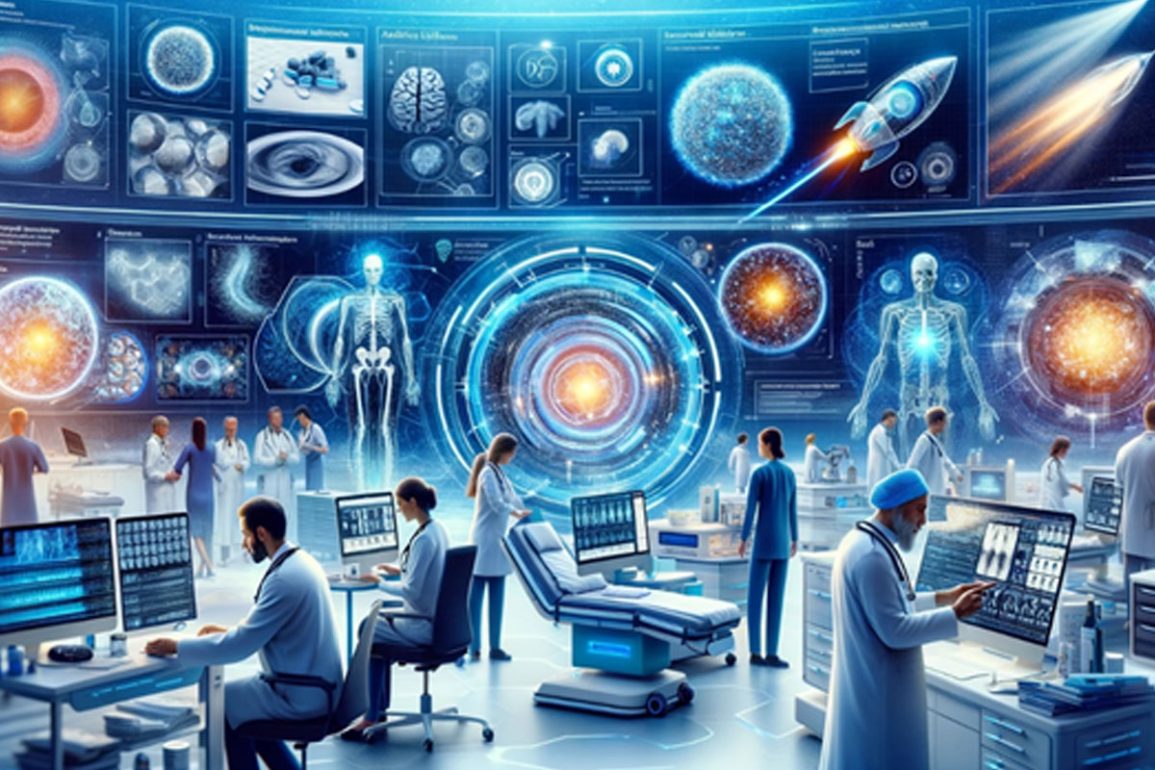Karthik Meduri1 , Hari Gonaygunta2 , Geeta Sandeep Nadella3 , Priyanka Pramod Pawar4 , Deepak Kumar5
University of the Cumberlands, KY, USA1,2,3,4,5
Adaptive Intelligence in Healthcare: Harnessing GPT’s Power
In an era where the healthcare industry is continuously evolving, driven by an expanding corpus of medical knowledge and the emergence of new diseases, the integration of Generative Pre-trained Transformers (GPTs) and Large Language Models (LLMs) is heralding a new dawn of adaptive intelligence. This innovative approach is a technological advancement and a paradigm shift towards dynamic, responsive, and personalized healthcare solutions.
Transformative Applications of GPT in Healthcare
The research meticulously explores various domains within healthcare where GPT models can significantly impact, emphasizing clinical decision-making, medical imaging analysis, personalized medicine, and assisting in complex diagnoses.
Clinical Decision-Making: GPT models, with their profound ability to digest and synthesize vast medical literature, emerge as dynamic decision-support systems. They enhance diagnostic accuracy and ensure healthcare delivery meets the latest findings and guidelines.
Medical Imaging Analysis: The application of GPT models in medical imaging is revolutionizing the field by providing deeper insights into imaging data. This not only aids in detecting abnormalities with higher precision but also enriches the interpretive process with contextual knowledge, thereby elevating patient outcomes.
Personalized Medicine: GPT models excel in tailoring medical treatments to individual patients by analyzing diverse data sources, including medical history, genetic information, and lifestyle factors. This bespoke approach optimizes treatment efficacy and minimizes adverse effects, marking a significant leap towards patient-centric care.
Complex Diagnoses: The inherent complexity of certain medical conditions demands a nuanced understanding that GPT models are uniquely equipped to provide. By assimilating and analyzing multifaceted data, they support healthcare providers in unraveling complex diagnostic puzzles.
Ethical Considerations and Future Challenges
While promising, the adoption of GPT models in healthcare necessitates a cautious approach to address ethical concerns surrounding patient data privacy, model interpretability, and the potential for bias. Ensuring the ethical use of these technologies involves rigorous validation, transparent AI systems, and the development of comprehensive policy frameworks to guide their integration into clinical practice.
Strategic Adaptation for Future-Proof Healthcare
The study emphasizes the importance of dynamic adaptation strategies, such as cross-domain knowledge transfer and the validation of GPT models, to ensure their efficacy and reliability in clinical settings. The continuous evolution of medical research and practice demands that these models are adaptable and rigorously tested and validated to meet emerging healthcare challenges.
Empirical Evidence: Real-World Impact
Highlighting several case studies, the research underscores the practical application and transformative potential of GPT models in clinical decision-making, diagnostic accuracy, and personalized treatment plans. These real-life examples testify to the models’ ability to significantly enhance healthcare delivery and patient outcomes.
Navigating the Future of Healthcare with GPT
The integration of GPT models in healthcare holds immense promise for advancing medical research, refining clinical practices, and informing policy development. However, realizing this potential fully requires addressing ethical, legal, and regulatory challenges through collaboration among scientists, healthcare professionals, and policymakers.
Conclusion: A New Horizon in Healthcare
The exploration of GPT-powered language models within the healthcare sector unveils a future where adaptive intelligence can significantly improve patient care and healthcare delivery. This journey, marked by groundbreaking research and collaborative innovation, promises to reshape the landscape of medical research and practice, making healthcare more responsive, personalized, and effective.
In summary, “Adaptive Intelligence: GPT-Powered Language Models for Dynamic Responses to Emerging Healthcare Challenges” highlights the revolutionary impact of GPT models on healthcare and charts a course for their ethical, effective, and transformative integration into the sector. As the field evolves, this research serves as a cornerstone for future advancements, promising a brighter, more adaptive future for healthcare delivery and patient care.








